Persian venerated on International Mother Language Day
The occasion of International Mother Language Day, Feb 21, warrants a look at one of the most beautiful and important languages Persian or Farsi, since it receives a lot of the wrong kind of attention despite appreciation by some of the world’s greatest poets; among them Goethe the great German poet who drew on Persian verse for his works.
The wrong kind of attention, on the other hand, has historically come from ill-wishers trying to divide and rule this strategically located and rich land which connects the Indian Subcontinent to Europe and is strategically placed along the Silk Route.
The latest attempt at mischief, however, has arisen closer to home under the guise of the hashtag #ManoFarsi or Me&Persian.
What can be said of Persian? Persian is as sweet as sugar, Persian is the language of poetry and culture; it has been widely used in India and was once considered the language of science.
Most importantly though it is a common Iranian language, unifying and uniting the Iranian peoples.
But now with new hashtags people abroad are trying to convince us to bin it or lock it up at best!
#Manofarsi claims to Highlight Language Discrimination in Iran
Mohsen Rasooli, a so called Anti-racism activist has said: "We want to raise awareness about the suffering of living in a monolingual system, within a multilingual society"
If a country is multilingual the implication is that many languages and dialects are alive, so they haven’t been suppressed or repressed, although Iran is a sovereign state and needs a state language.
Persian not an adversary to local languages and dialects
It’s in the nature of the Farsi language and Farsi speakers throughout history that they don’t consider the language a superior one.
They don’t consider a poem in another language as inferior or primitive compared to Farsi. That’s what I mean when I say they’re all part of a larger corpus.
The more we focus on strengthening them, the main corpus gets stronger, it won’t be weaker. Farsi isn’t harmed if Kurdish poetry is strengthened.
Hosseinali Rahimi, Academy of Persian Language and Literature
France and Germany need a state language, or lingua franca, so does Iran, a land united by a Persian king over 2500 years ago. And indeed, Persian has not destroyed or overshadowed its sister-languages and dialects.
Those dialects and regional languages have always existed, but speakers of those languages have chosen to recite poetry in Persian, therefore making Persian their own.
So why would they give it up, together with their Iranian nationality and claim on the whole of Iran, by separating from the mainland and adopting their own provincial language or dialect as the lingua franca in their new country, which would actually be no more than a province?
That is the course of action suggested by the #manofarsi and the like.
First of all, even separation as united or federal states do not mean scrapping a common language facilitating relations. Look at America and Germany.
Secondly, why divide a country at a time the whole world is becoming one just because Israel or Saudi Arabia thinks it’s a good idea?
It’s interesting to know that for example in France, since 2018, all dialects other than the standard language are banned. Why aren’t the enemies (of Iran) targeting that? Following Brexit, 17 British, 38 German, and 2 Italian dialects were totally banned there.
This shows that the issue of identity and a shared language is pretty significant. Farsi is the standard language here. But, as you know, Kurdish and Turkish are being taught in our schools. The parents speak their local language to their children at home.
We’ve never run into any problems in that regard. But the enemy invests energy on such issues because it wants to target our culture.
Morteza Simiari, Political Analyst
The #manofarsi hashtag spread like wildfire at the hands of Persian-language UK -based news channels, such as Iran International, a channel funded through a secretive offshore entity and a company whose director is a businessman from Iran’s regional rival, Saudi Arabia, with close links to the Saudi crown prince Mohammed bin Salman.
Turkey has also been working on its pan-Turkism aspirations; Israel has said the middle-east should be split down into small states, and the west still hold to the principle of divide and rule, given their interest in Iran.
The colonists’ policy in dealing with Muslim nations and third-world countries, in general, is that of Divide and Rule. They’ve devised a whole slew of plans for that too.
Take Africa, for example. Taking a look at the map of the continent, you’ll see thousands of kilometers of straight border lines. That obviously hasn’t been natural, they’re hand-drawn.
But somewhere along the borders, you’ll see the lines moved a little. What is that? It’s where they’ve divided an ethnic community into two parts to turn that into a dispute for both countries.
Or they may have left some parts of the borders open so both sides have territorial claims on the land and are in constant opposition to each other. Or they may have sowed religious discord among the people, calling one group Shia and the other Sunni. They’ve even created divisions among Shia Muslims. This is while all those people believe in Islam.
They’ve started ethnic disputes and fomented racist ideas. For example, they told Iranians that their race is superior to Arabs and Turks. They told the latter two the same thing. The latest move is an extension of that.
Mohammad Hassan Ghadiri Abyaneh, Former Iranian Diplomat
Sevil Suleymani, co-founder of the End of Monolingualism campaign, complained to IranWire about having been in a class of 35 non-Persian speakers when she was in the first grade of primary school in Iran.
The complaint was that these 35 non-Persian speakers had to study in Persian.
In Ardebil, where she spent her early life, of course the whole class will have learnt their first few words at home in Azeri Turkish, as it is spoken without restriction, is taught at school in the Azerbaijan province, and is broadcast in on local TV stations.
Now who wouldn’t want their child to study in the state language at school? Apparently Suleymani, who said:
"The Iranian education system is not designed for language-learning. The system is geared toward high literacy, assuming that all children know Persian. About 50 percent have no idea.”
That is in fact why they go to school, to learn.
It would appear that Suleymani who had such trouble learning Persian or studying in Persian at school, managed to master English as a PhD student of Sociology at George Mason University, Virginia, USA.
I realized something interesting when I examined the hashtag that became trending. At first, the hashtag was used only 8 times.
But immediately after al-Arabia Farsi and Saudi Arabia’s Iran International carried out operational work on it, the hashtag was used and retweeted nearly 43-thousand times on social media platforms.
This showed that a party was taking initiative and driving a movement. It was very interesting. Our findings showed that the cyber movement was being directed from Saudi Arabia and the Occupied Territories that were being helped by separatist and counter-revolution groups [anti Iran].
They were creating an atmosphere we know as psychological warfare, which is part of the hybrid warfare the Leader of the Islamic Revolution mentioned in his latest remarks.
Morteza Simiari, Political Analyst
Suleymani grew up in Parsabad in Azerbaijan. Parsabad means a land constructed by Persians or inhabited by Persians. That’s one example to show the area never started out as Azeri Turkish-speaking to begin with!
Azer or Azar actually means fire, indicating a Zoroastrian past rather than Turkish.
A person living in Samarkand can’t say that Farsi is an international language that can be used to communicate with someone in Tehran. That person has a share in the creation and possession of this language.
That’s the case for a person living in Tabriz.
Qatran Tabrizi wrote poems in the city not too further in time than Rudaki. The land where Nizami Ganjavi was born has a share, too.
When we say we have a Farsi language that can rise in the world and have something to say among other languages, it is because of these masterpieces.
Hosseinali Rahimi, Academy of Persian Language and Literature
Apart from a Persian past, the CIA World Factbook holds that 53 percent of Iranians speak Persian as a main language. That’s to say their early words were Persian in their mother-tongue. The 2001 Iranian census, put the percentage of Iranians born to the Persian language at 68 percent, but that was including distinctive dialects such as Lori.
A dialect can be considered a branch of the main language. It is not guaranteed that any two given Lori or Kurdish villages will understand one another’s dialect or language variation.
So, hypothetically, If the nations enemies manage to divide Iran, the many dialects among each tribe and ethnicity will be a problem.
They will still have to select one version of their mother tongue, Kurdish for example, as their official language. This would lead to a more constrained version of monolingualism with the exclusion of any linguistic commonalities between them.
In other words omitting Persian is just an excuse to weaken Iran at its core.
We belong to a historical identity that is above and beyond that of the American, Saudi, and the Israeli enemies. They know that they can’t confront a nation that has such a strong cultural and civilizational background.
But they can put cracks on its body and gradually make it spread. This is what they’re investing in.
Morteza Simiari, Political Analyst
Linguistic Divide and Rule
In keeping with the Divide and Rule policy, they’re focusing on the linguistic division of the people. Why shouldn’t every ethnic group speak its own language?
Why are they trying to teach English and French to every single person? Is it because they want Iranians to forget their own language and learn theirs instead?
We don’t take issue with learning a foreign language. The more languages we learn, the better.
Mohammad Hassan Ghadiri Abyaneh, Former Iranian Diplomat
The said Hashtag circulators and promoters say: “We want to see an acceptance of pluralism, and of ethnic, linguistic, religious and gender diversity.” Well it looks like her hashtag would have each new provincial country teaching its own mother tongue or dialect as its lingua Franca, leaving it monolingual without the treasure that is Persian.
The hashtag promoters, however, complain about monolingualism being enforced in Iran, saying that even in the Constitution of the Islamic Republic, under Article 15, the teaching of literature in one’s mother tongue (local language or dialect) is explicitly emphasized.
Two articles of Iran’s constitution cover the status of ethnic minorities:
Chapter 2, Article 15: The official language and script of Iran, the lingua franca of its people, is Persian. Official documents, correspondence, and texts, as well as text-books, must be in this language and script. However, the use of regional and tribal languages in the press and mass media, as well as for teaching of their literature in schools, is allowed in addition to Persian.
Nobody demanded Qatran to write Farsi poems. No one asked a poet in Shiraz to write in Farsi. They all chose to do so themselves. The Farsi that took shape 11-hundred years ago underwent an evolution throughout the centuries that passed.
Which version of Farsi are we feeling proud of? The Farsi that Hafez, Nizami, and Roumi, who went from Balkh to Konya, wrote their poems in. That’s the Farsi we’re proud of and rely on.
No government ordered Roumi to write poems in Farsi. This is a rug, each knot of which belongs to a specific region. The more knots there are in the rug, the more durable it will be.
Hosseinali Rahimi, Academy of Persian Language and Literature
Chapter 3, Article 19: All people of Iran, whatever the ethnic group or tribe to which they belong, enjoy equal rights; and color, race, language, and the like, do not bestow any privilege.
I’m from Gilan. I was born to a Taleshi family and my mother tongue is Taleshi. My family migrated to Rasht and started speaking to me in Gilaki when I was born. I acquired Gilaki at home, learned Farsi at school, and learned to speak Taleshi at the same time.
What sparked my interest in the Farsi language, which I’ve studied as a major and am speaking right now, was the fascination I had in Shahriar’s poetry back in my student years. If I didn’t know Shahriar, maybe I would’ve pursued a different educational and occupational path.
Hosseinali Rahimi, Academy of Persian Language and Literature
Talking of the unifying element of Persian this language that has given Iranians a wealth of literature and science to boast, and which all touched by it love it and won’t give it up.
Daryush Shayegan an Iranian scholar puzzled when in Egypt as to why Egyptians, themselves an ancient civilization, would take on Arabic as their state language.
Hassaneyn Heykal, an Egyptian journalist explained: “Because we didn’t have a Ferdowsi, we didn’t have a poet that great to write an epic using a minimum of Arabic and a maximum of our own words, to rescue and preserve our language and mythology. Because that is what the great Ferdowsi did for Iran and Iranians of any creed and colour”.
BBC Persian made a program and invited someone for an interview as a linguistic expert. The first question the host asked the expert was “what sufferings have you had to experience throughout the years because of Farsi?”
We’ve had over 200-thousand Farsi dialects in the country. The people have lived with each other for centuries and have never had a problem with their languages.
The question the BBC Persian host posed and the answer the expert gave laid the foundation for other issues.
After that, al-Arabia Farsi, which is a part of Saudi Arabia’s security agencies, asked the viewers: “What problems do you have with Farsi?” It’s interesting to know that the BBC Persian expert is an agent managed and controlled by Germany’s Federal Intelligence Service.
His ties with intelligence Western intelligence services in Europe and the cooperation between them and Saudi and Arab services to affect the people in our society are the manifestation of the hybrid warfare we’re currently witnessing.
Morteza Simiari, Political Analyst
The Azeris, people from both the Western and the Eastern Azerbaijan provinces, call Tehran Central Azerbaijan! I need not explain their prominent presence in the capital.
I think they were gauging the public reaction. It’s the nature of media work. You’re doing this yourself. We have a day called the International Mother Language Day and create appropriate events to mark it. It falls on the 2nd of Esfand or the 21st of February.
The fact that they focused on the issue 3-4 weeks prior to the day in their media can signal that they were after bigger plans and were just testing the waters. The result they saw wasn’t what they expected.
The educated people living in Azerbaijan, even those who write poems in their local languages, those in Gilan and others, didn’t give them the results they wanted. What the Iranians told them was kind of a slap in their face. I believe that they canceled their other plans because of that.
Hosseinali Rahimi, Academy of Persian Language and Literature
https://www.presstv.ir/Detail/2021/01/25/643830/Tehran-Book-Fair
The first evidence of Persian literature is usually dated to circa 522 BCE with the creation of the Behistun Inscription of Darius I (the Great, r. 522-486 BCE).
New or Modern Persian, however, the form of the Persian language written since the 9th century, is known as Farsi in Iran, where it is the country’s official language, and as Dari in Afghanistan, where it and Pashto are official languages.
It is written using a Cyrillic alphabet by Tajiks in Tajikistan and Uzbekistan.
For centuries New Persian has also been a prestigious cultural language in western Central Asia, on the Indian subcontinent, and in Turkey.
What all Europeans stand for is to remove the barriers and have single identity cards and means of communication so they can invest anywhere. But you can invest anywhere in Iran, and live anywhere across the country. We have it all in here.
Now imagine there are 5 separate regions and want them to unite them the way Europe is trying to. They wanted to establish a common language but failed. This is while we have a standard language.
Over there in Europe, every country, be it Germany, France, Italy, or Norway, has its own language. But over here, our common language is Farsi, but all other languages are of equal value.
Mohammad Hassan Ghadiri Abyaneh, Former Iranian Diplomat
In the past Persian was widely understood in an area ranging from the Middle East to Central and South Asia and to Xinjiang in China.
Persian is the second language of Islam and was instrumental in the spread of the faith during the reign of the Moguls in the Indian subcontinent. Many Persian words are to be found in Urdu.
Turkish also contains many Persian words. The study of Ottoman Turkish literature without knowledge of Persian would be meaningless. Never mind the Persian language, the people of Turkey are, for all intents and purposes, cutoff from their past because they changed their script.
There are also sizeable Persian, language or dialect, speaking populations in other west Asian countries such as Bahrain, Iraq, Oman, Yemen and the United Arab Emirates. Large communities in Europe, Turkey, Australia, the USA and Canada also speak standard Persian.
I think you can find the most beautiful words in Farsi in the poems of Ferdowsi, Hafez, and Saadi. Our language has been so rich that you can see its impressions on the works of Goethe and Western writers.
As a matter of fact, one of the reasons the British focused on Farsi and launched such psychological warfare was because of the same reasons. They wanted to tout the English language and culture as superior.
But if they have Shakespeare, we have Hafez, Saadi, and Rumi. We have a cultural and civilizational hub, something they’re against.
Morteza Simiari, Political Analyst
VIDEO | Pro-Palestine protest in Madrid challenges UK repression
Canada PM: World order in ‘midst of a rupture’ from US hegemony
VIDEO | Iron walls: One year of Israel’s largest military operation in Palestine in years
Italian farmers protest EU-Mercosur free trade deal
VIDEO | Russian FM holds annual press briefing, highlighting ‘equality-based’ diplomacy
VIDEO | Israel rejects Gaza 'technocratic body' amid continued suffering in Gaza
Iranian prodigy Benyamin Faraji wins Under-17 title in Qatar
VIDEO | Press TV's news headlines


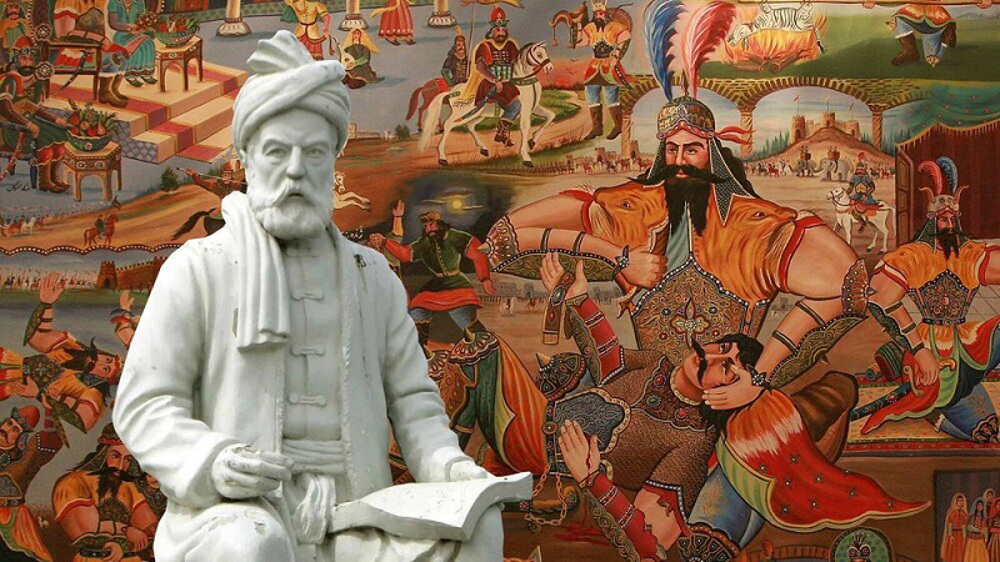
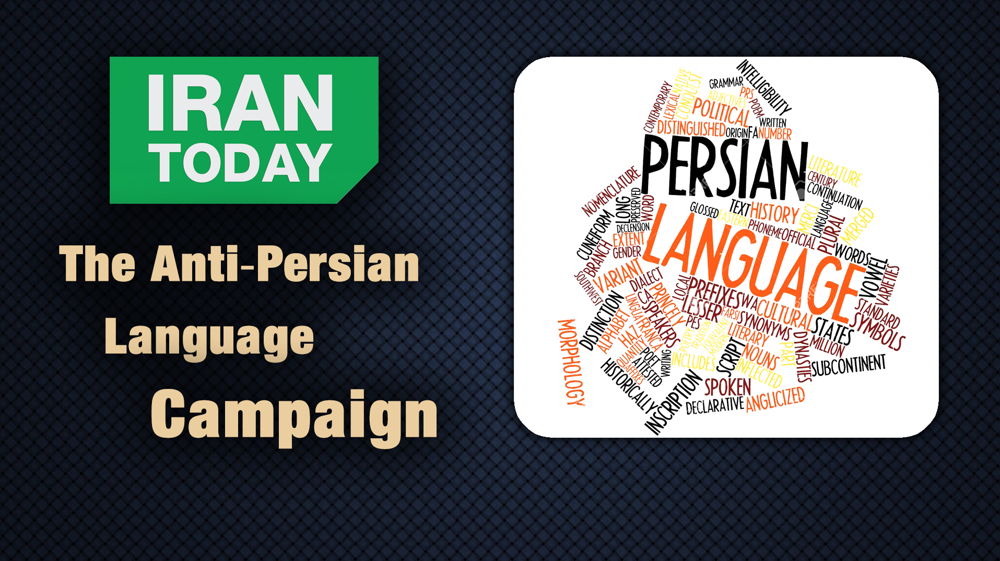
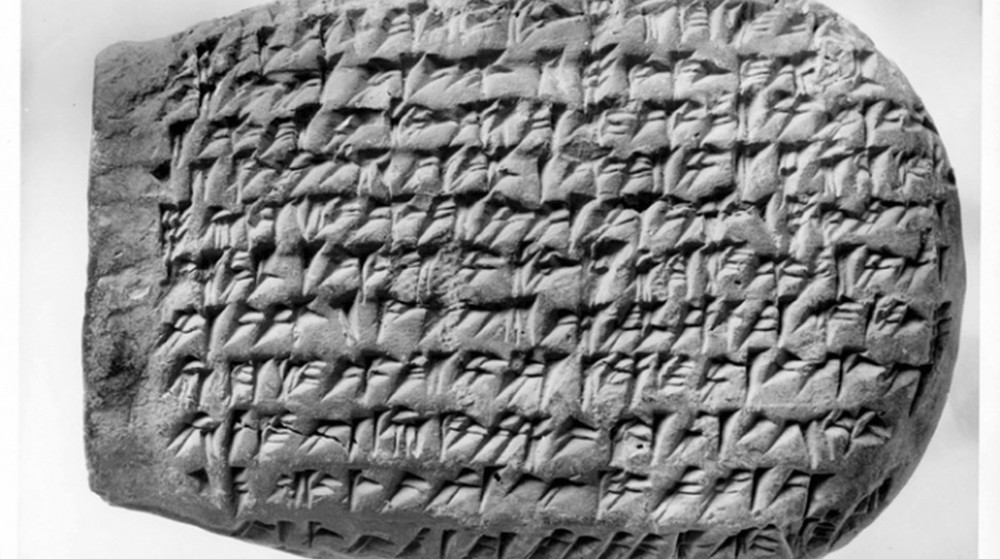
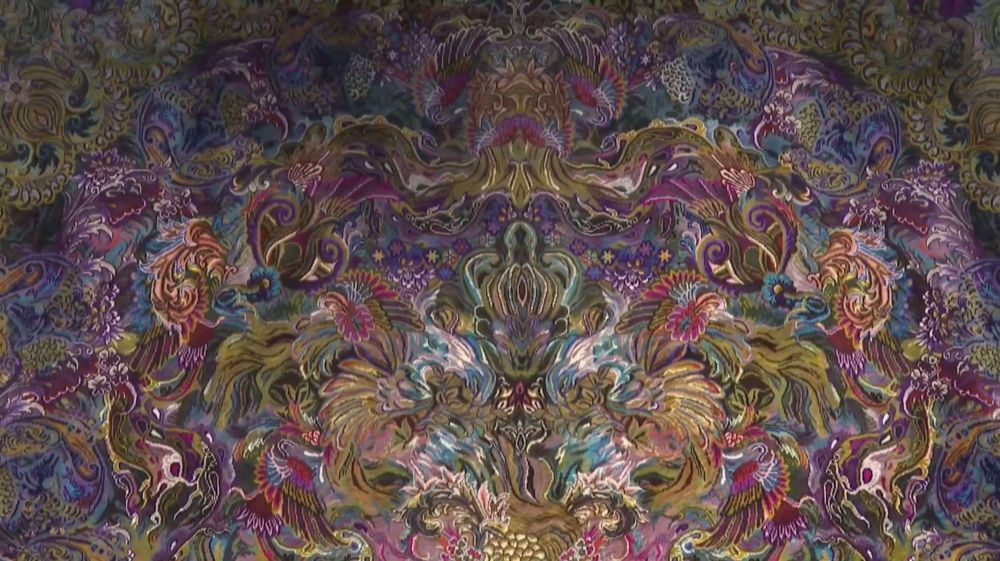
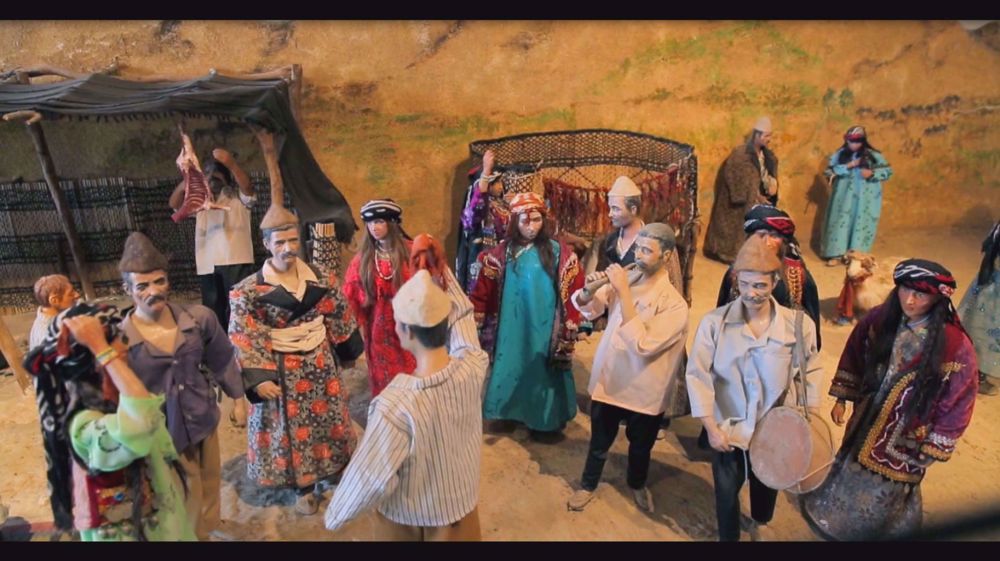
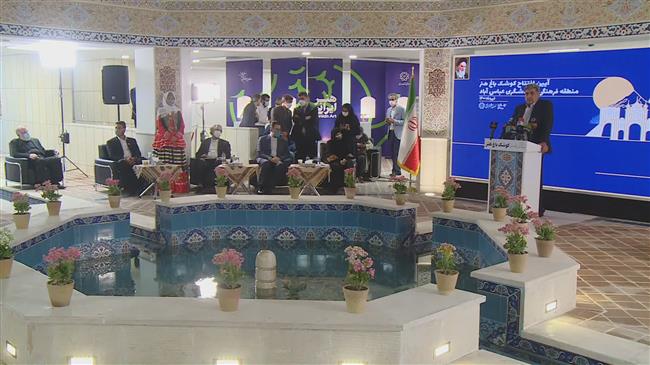
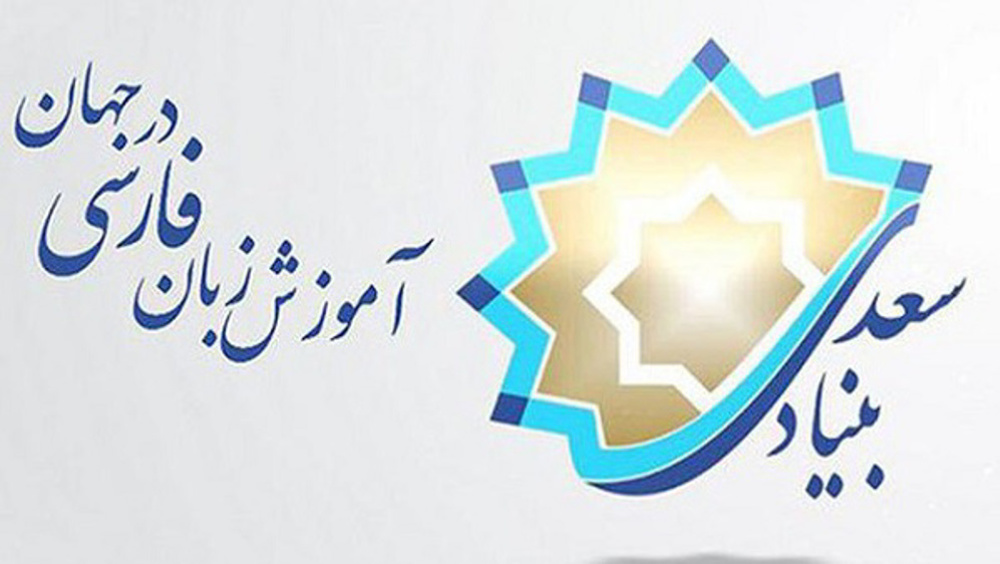
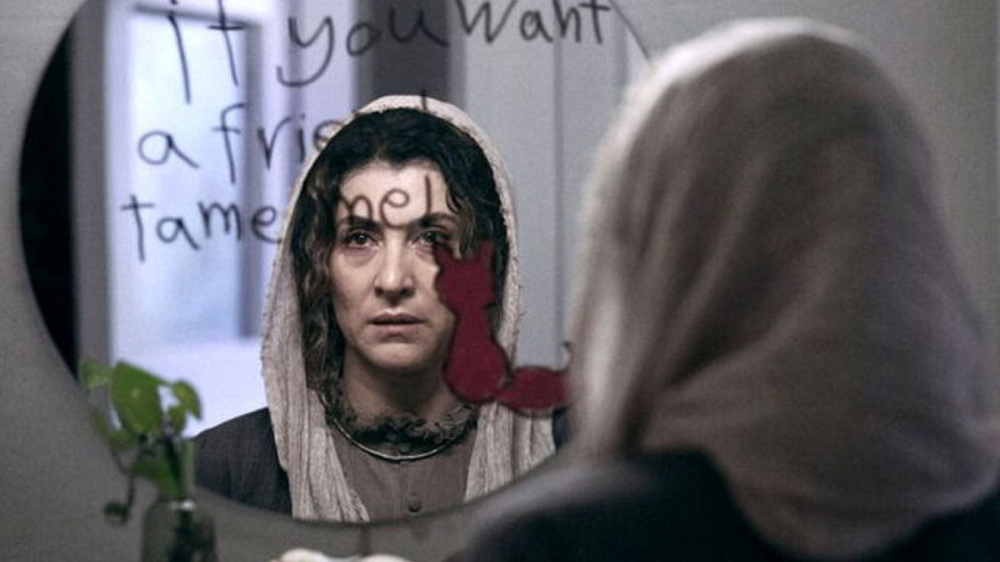
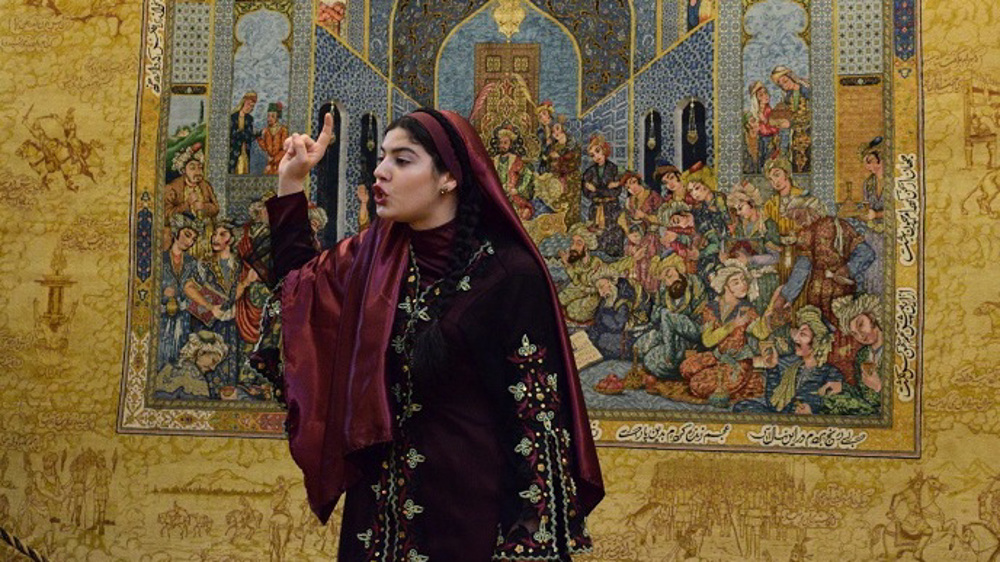

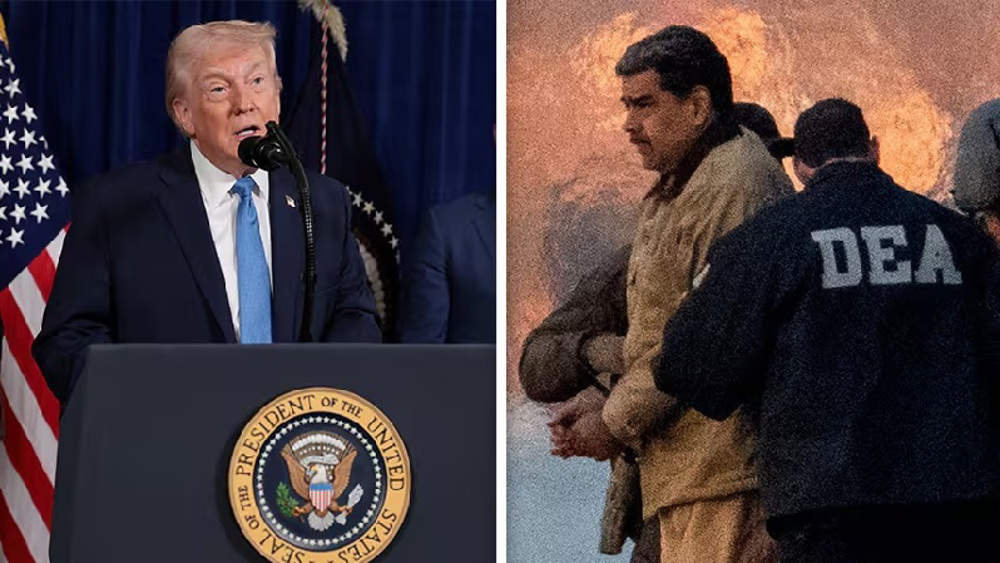
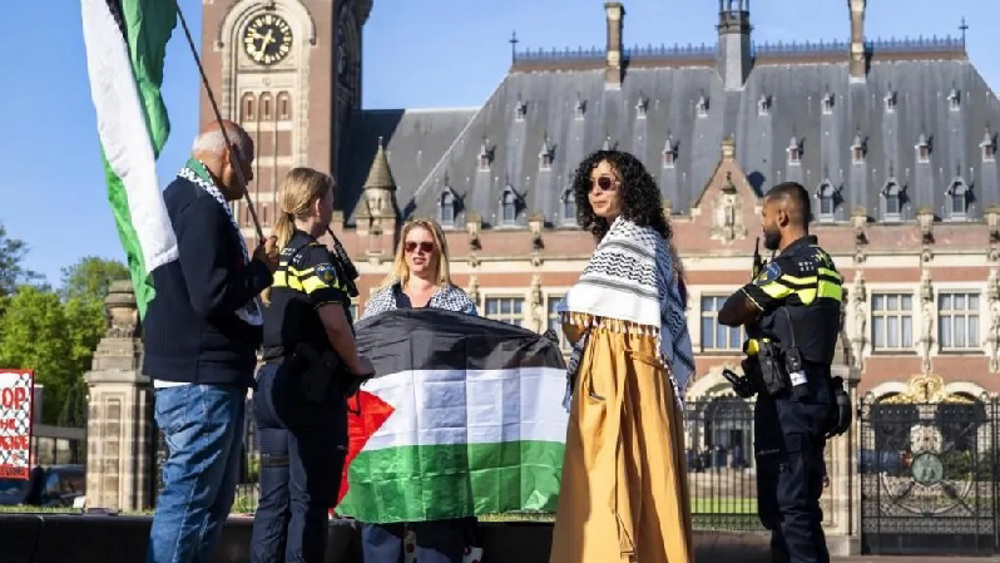



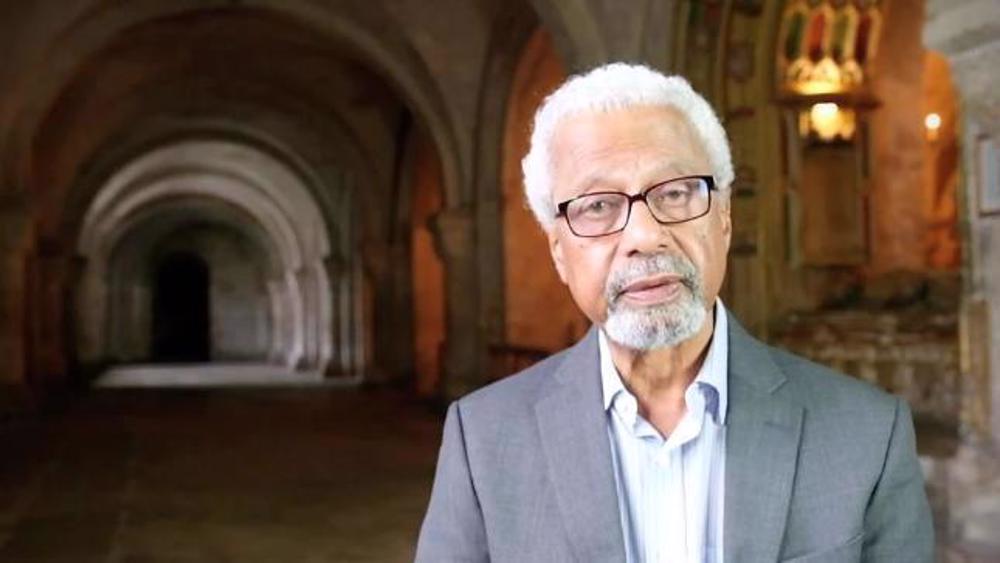
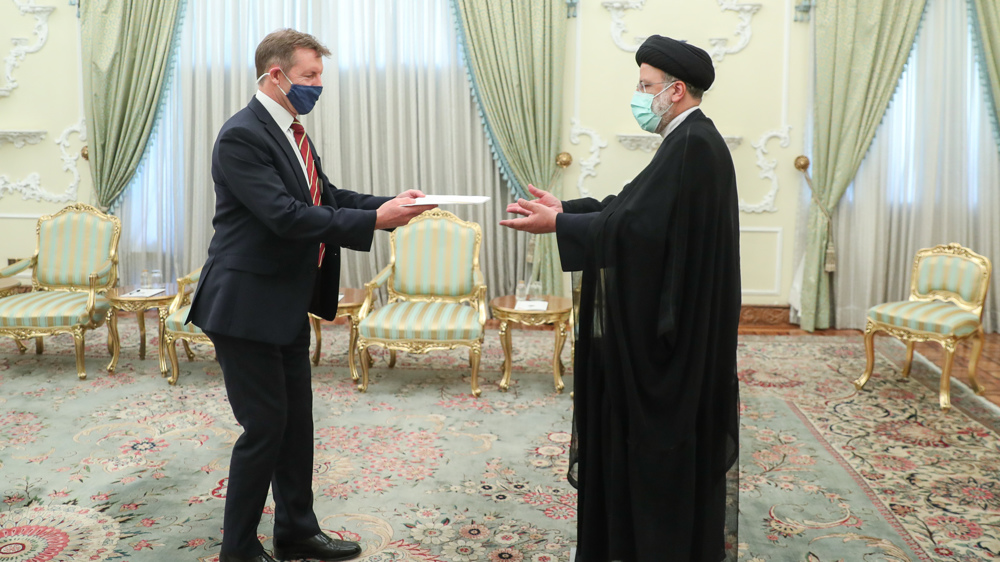

 This makes it easy to access the Press TV website
This makes it easy to access the Press TV website